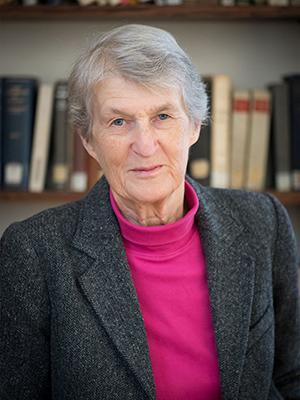Katerina Clark
Professor Katerina Clark, B. E. Bensinger Professor of Slavic Languages and Literatures and of Comparative Literature at Yale University, passed away peacefully February 1, 2024.
Professor Clark was a pathbreaking scholar of twentieth-century Russian and Soviet culture, one of the most influential Slavists and comparatists of her generation. Her work was instrumental in overcoming reductive and politicized approaches to the study of Soviet culture that were set by Cold War rivalries, and helped transform this field into an intellectually vibrant critical enterprise that continues to be a source of scholarly innovation. In particular, Professor Clark’s The Soviet Novel: History as Ritual (1981, three editions) has inspired generations of scholars and to this day remains the essential reference point on the subject.
In her prize-winning research, published with the most prestigious presses in North America, Professor Clark further expanded the boundaries of the discipline though her monograph Petersburg, Crucible of Cultural Revolution (1995) and through her bold effort to put the study of Stalinist-era culture into global comparative contexts, in works such as Moscow, the Fourth Rome: Stalinism, Cosmopolitanism and the Evolution of Soviet Culture, 1931-1941 (2011), and Eurasia without Borders: Leftists Dream of a Literary Commons, 1919-1943 (2021). She also co-authored a monograph on Mikhail Bakhtin (1987) with Michael Holquist, and co-edited Soviet Culture and Power: A History in Documents, 1917-1953 (2007) with Evgeny Dobrenko.
Her books have been translated into Russian, Chinese, Japanese, Italian, Czech, Portuguese, and Spanish, a testament to the global impact of Professor Clark’s scholarship. They have garnered such major awards as the Wayne S. Vucinich Prize for the best book in Russian, East European or Eurasian Studies, the Historia Nova Prize for the best book in Russian intellectual history, and the Matei Calinescu Prize from the Modern Languages Association. In 2007, she received the AATSEEL Award for Outstanding Contributions to Scholarship, and in 1999 she served as President of the American Association for the Advancement of Slavic Studies (currently ASEEES).
In addition to her immense research contributions, she has also inspired and trained generations of young scholars in Slavic and Comparative Literatures. For over thirty years at Yale University, she was a much-loved colleague and mentor. Her passing is a huge loss for our community.
